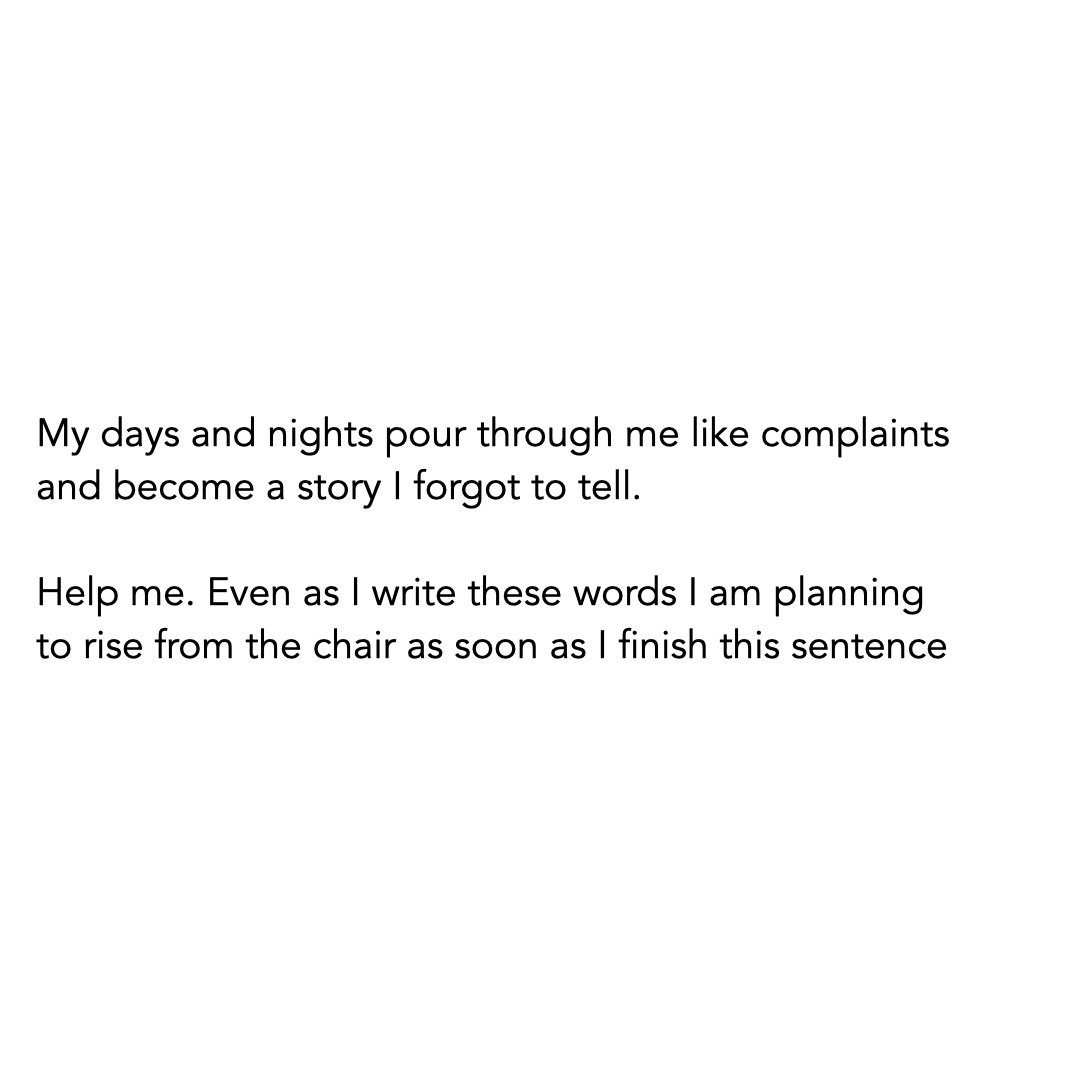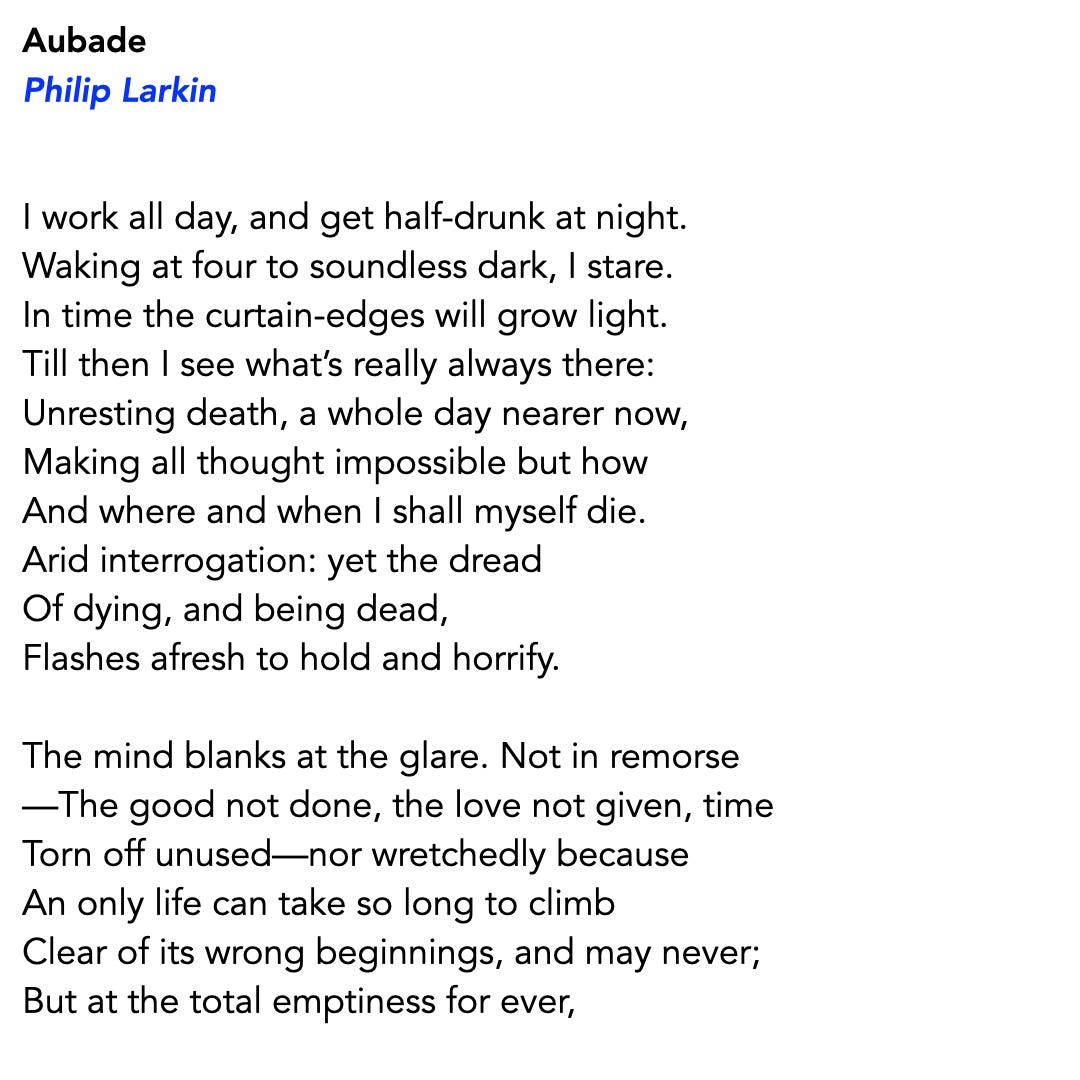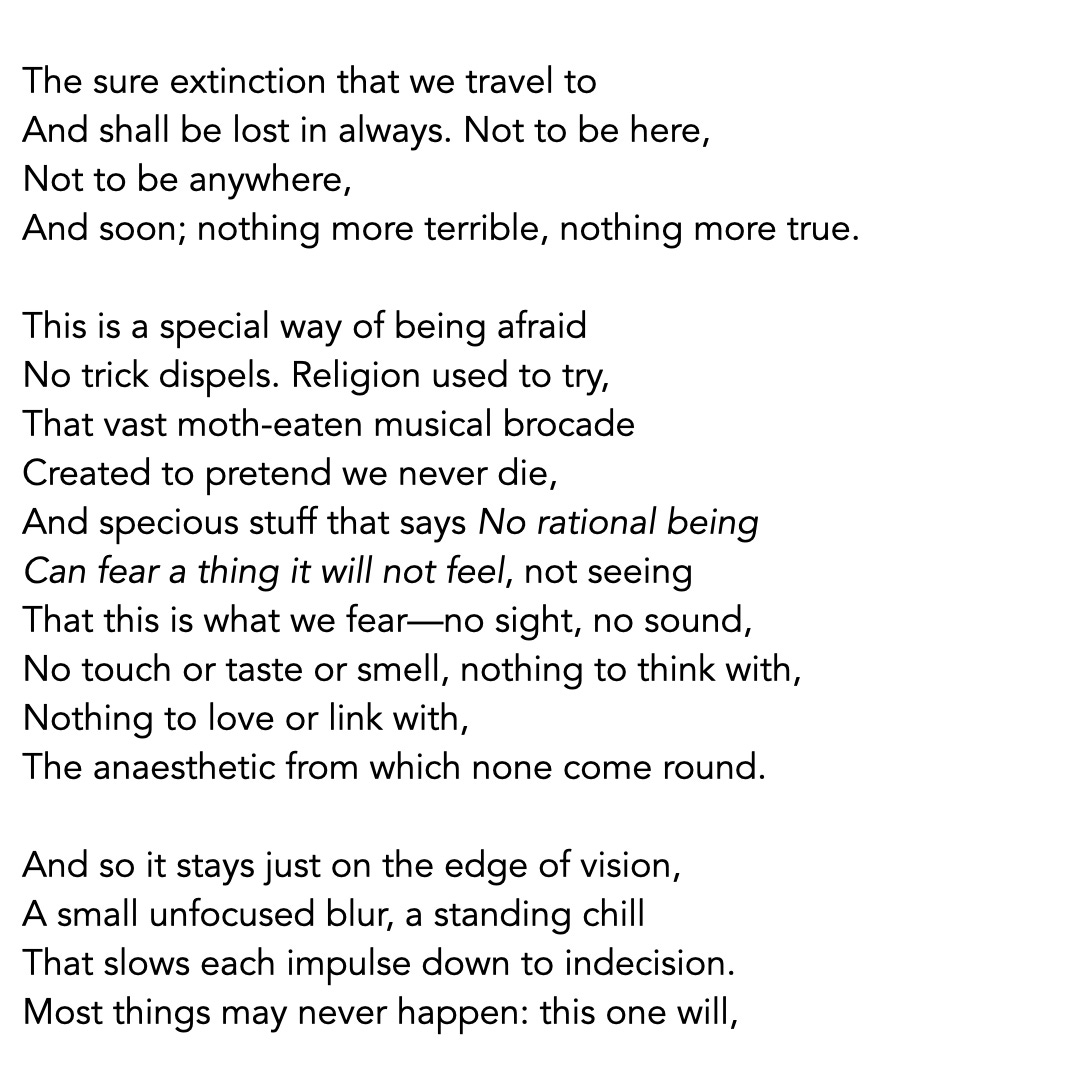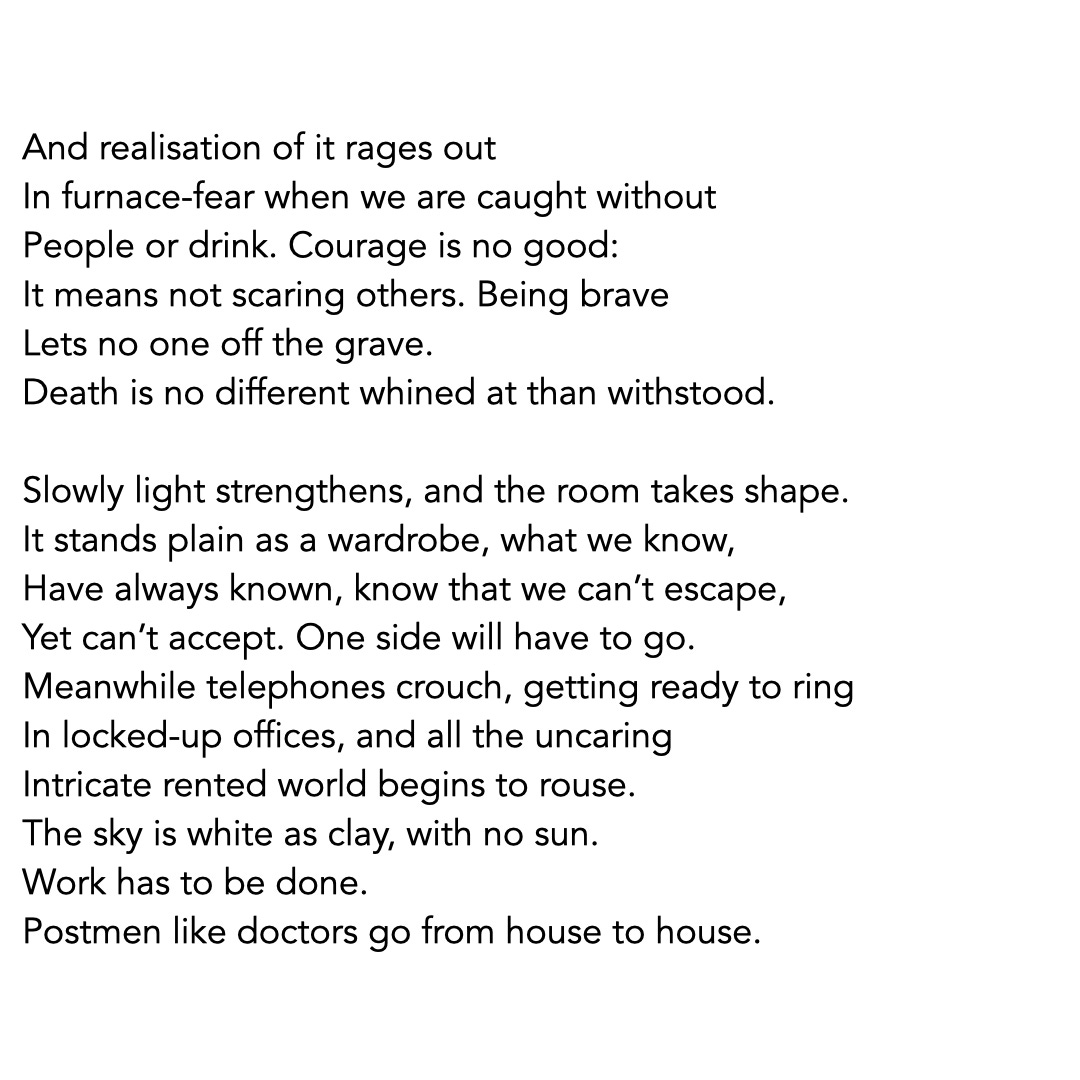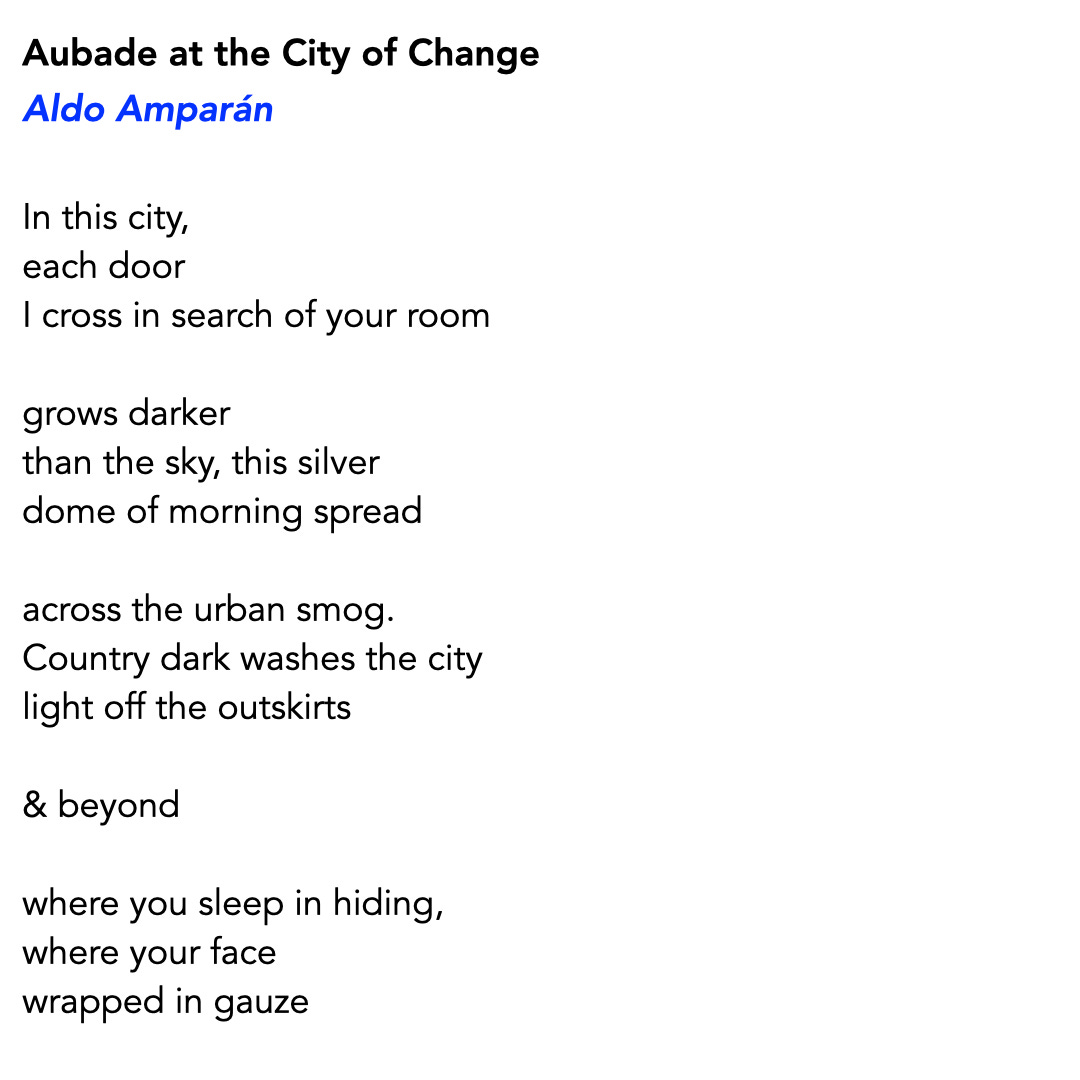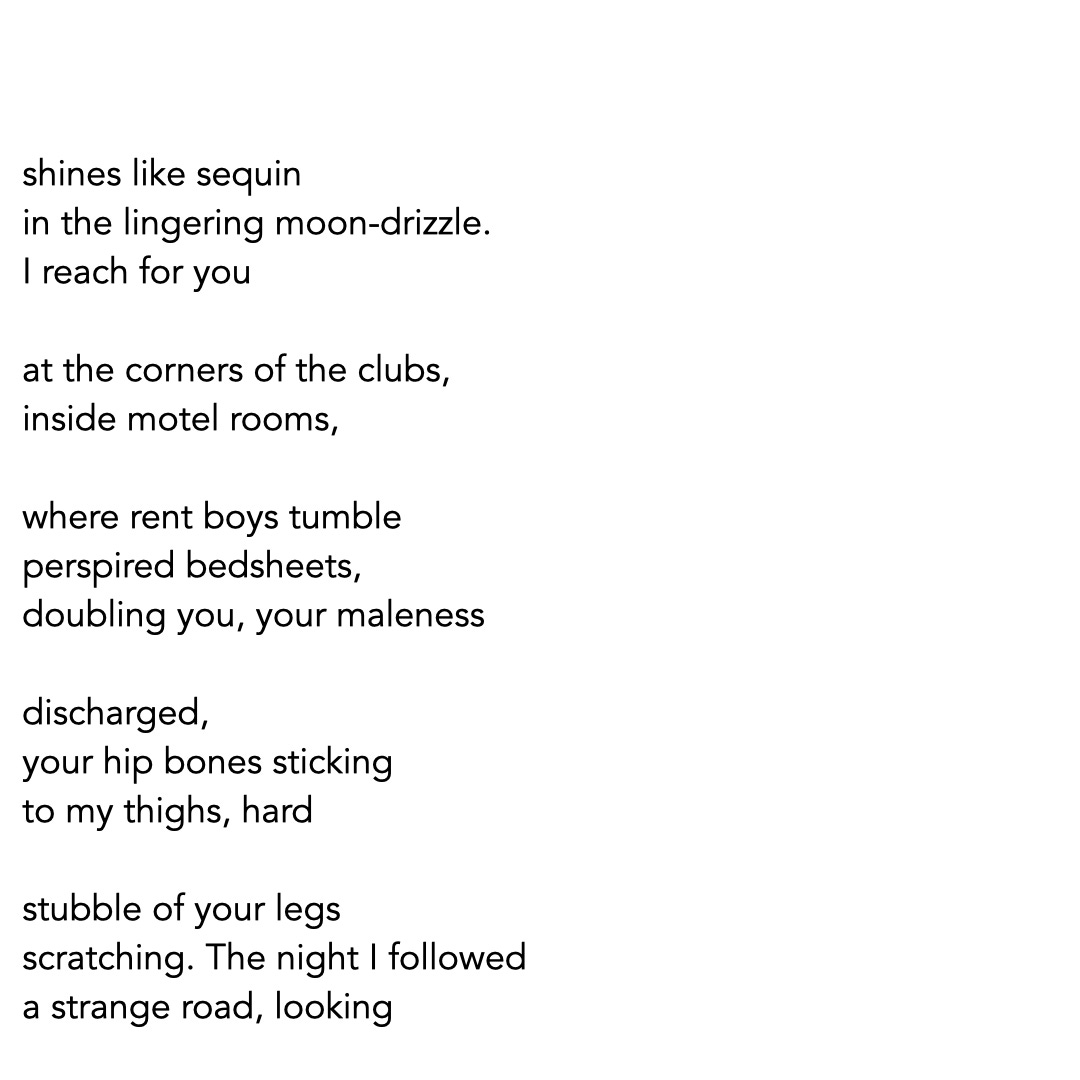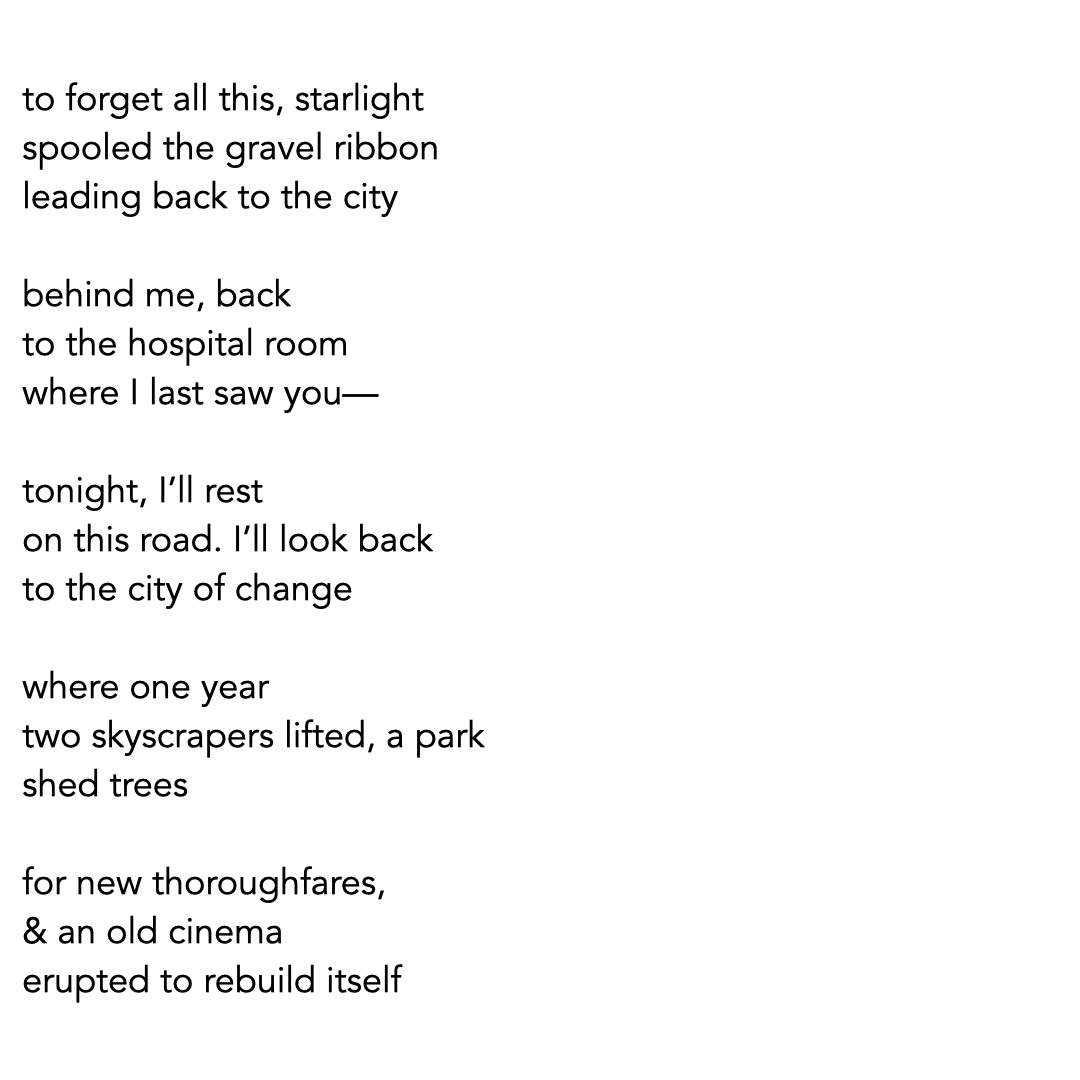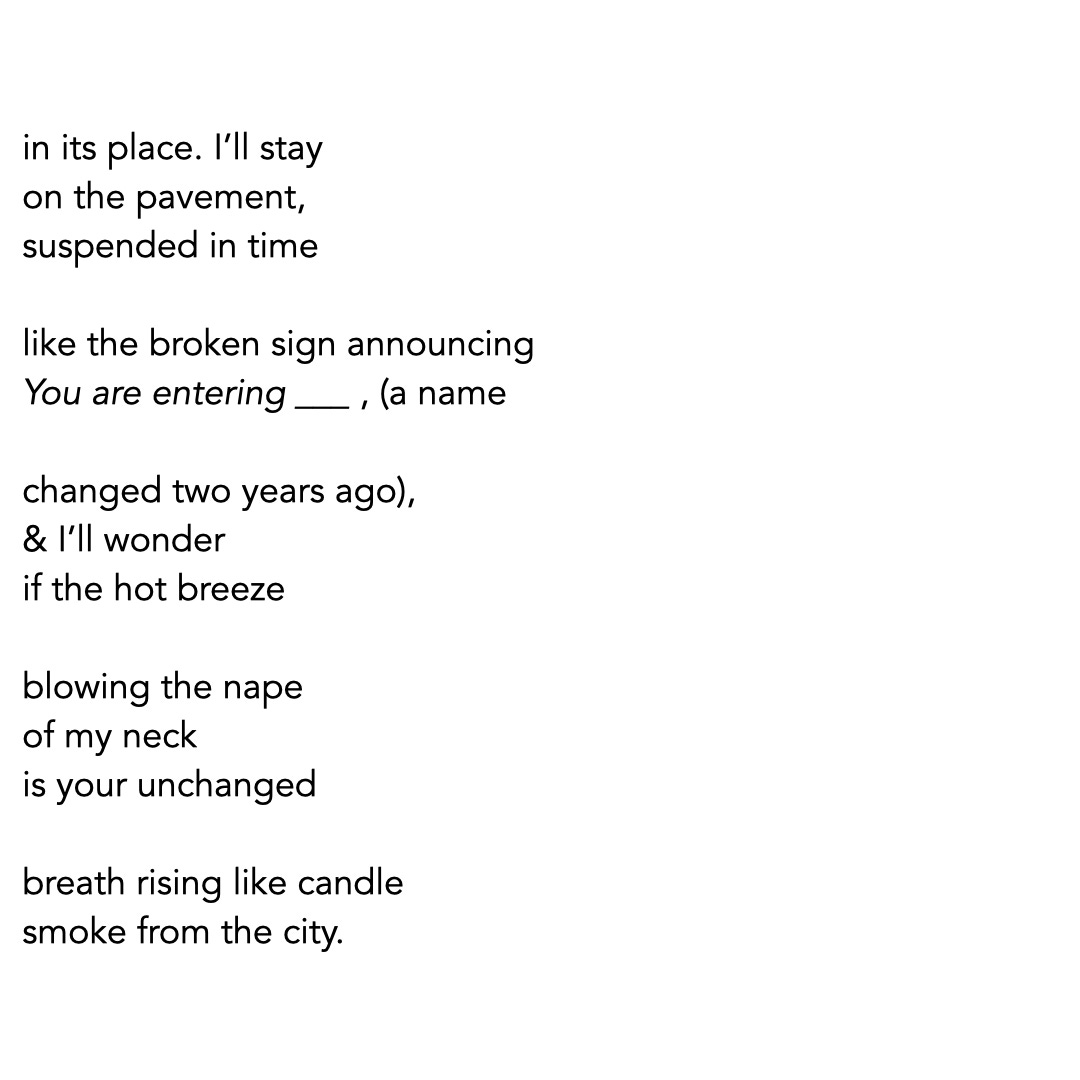“Every day I want to speak with you. And every day something more important/
calls for my attention..”
Thus begins Marie Howe’s glorious Prayer. This is the way, is it not? I wake up every morning in a room that reminds me of all the burgeoning mysteries I haven’t solved yet. The broken tooth in the half-open book on the table is actually a door that was left ajar in the home of a groggy smile. All the poems I want to sing under-breath are interrupted by lost birds, frantic doorbells, or cooker-steam arias. I yearn, sometimes, for omnipresence, for uninterrupted sensation, to seek out all the polyphonic chimeric phantasmagoric world. The thousand things that rise and fall. all the everythings everywheres elsewheres that are happening simultaneously outside my ken.
Somebody once told me that everything, everything that I do in every way every-day is just another missive to the wind; another attempt to be loved more. And between these loves a protean time forgets that it must remake the routine of lust - a lust for life - again and again. Still, the only blueprint my body seems to follow, without thought or design, is the vanishing creed of the previous day. This is the ironic tyranny of the to-do list, if you think about it (there it is again, the door left half ajar).
How much to read, to write, to mimic, music and art-breathe, to stay alive in the fright, nay, the thrill, of thirsting desire? How much divine can this one body hold, how much can it reach, without becoming weary of its own impossible imagination? Marie Howe teaches us the tune to this rhyme - I learn from her the timbre of the question, not the question itself, and never the answer; and that is why her prayer is beautiful. I think the best storytellers teach the cadence of difficult questions in a language that presses the inarticulable answers into readers’ breasts, the way lovers press flowers in books for others to find; even other versions of themselves.
Howe’s apophatic musing on the cascading palimpsest of the ordinary hurtles breathlessly forward at the breakneck speed of [a] day(s) becoming. The comma to the unrolling sentence of this poem, inserted in the same breath, is the timely reflection kerned with a question:
The mystics say you are as close as my own breath.
Why do I flee from you?
With what simplicity she splits, both the poem, and the thought - intimate and outside, you and me, this moment and eternity, self and world, stillness and fleeing. These two lines in their formal precision teach the reader what it means to state a simple truth, and escape from its growing shadow in the very next utterance. In this, the lines mirror the schizoid workings of attachment and relationship - the inherent tension that both pulls a union inwards, and forces it apart; with every single gesture. I think this sensation is similar to the strange hold that “disgust” has on us. Often our curiosity pulls us towards objects and situations we find disgusting, even as we disdain them.
The irony of today’s curation is that I had collected this poem many days ago thinking that I would share it with you, dear reader.. but exactly what she describes in the poem has been happening. Love comes in the way of love again and again. Even as I share it with you today, I can feel its shimmering aquiline torso slipping from my fingers. This is the beauty of the world - the paradox of intimate ownership that allows you to feel the morning bursting through your skin even as you are secure in the certainty that you will never fully know it, nor possess it. ye duniya agar mil bhi jaae to kya hain. I say morning because this commentary began, actually, with a nod towards that thing called “morning energy”.
You, who pay attention, might know how much I love mornings. This morning, as a hundred different thoughts came to my mind, the whimsical bird of the aubade perched softly on my shoulder. It sat quietly, until it mid-afternoon, and eventually I had to obey its quiet call.
Since the Sahir quote has already introduced a bit of brooding into the conversation, let me further the reflection, then, with an aubade by Philip Larkin.
That last stanza that comes after his signature rumination, descends into the ordinary, now hollowed out with the acute awareness of time’s passing. It is perhaps one of my favourites from Larkin’s melancholic oeuvre. When I first read Larkin in high school, I dismissed him as a sad sack, and even though I liked many of his poems, I didn’t enjoy on his fascination with mortality. Over time, I came to love him, the way Pyaasa songs, or Mohammed Rafi elegies always end up filling the 3 am drunk-adolescence vacuum. But when I revisited this popular piece of writing today, it took me to another place of pensive wonder, undercut by the formal heft of the aubade. There is still, I believe, a perilous ledge where Larkin’s aubade meets Howe’s prayer - The good not done, the love not given, time/ Torn off unused. How devastatingly poignant, that last image, and what a difference in style from Howe’s “complaints”.
But in my romantic imagination, the aubade has always been about courtly love - idealised passionate mornings and perhaps a parting; a mixture of yearning, and impending separation. In fact, for me, there is no better representation of this exact mood than the scene of the morning, after the first time Romeo spends the night with Juliet (not the morning after the deaths which is usually referred to as the Aubade scene in Shakespeare’s R & J).
Again, it is an old favourite, so I will share it below:
Act III, Scene 5
Capulet’s orchard.
[Enter ROMEO and JULIET above, at the window]
Juliet. Wilt thou be gone? it is not yet near day:
It was the nightingale, and not the lark,
That pierced the fearful hollow of thine ear;
Nightly she sings on yon pomegranate-tree:
Believe me, love, it was the nightingale.
Romeo. It was the lark, the herald of the morn,
No nightingale: look, love, what envious streaks
Do lace the severing clouds in yonder east:
Night's candles are burnt out, and jocund day
Stands tiptoe on the misty mountain tops.
I must be gone and live, or stay and die.
Juliet. Yon light is not day-light, I know it, I:
It is some meteor that the sun exhales,
To be to thee this night a torch-bearer,
And light thee on thy way to Mantua:
Therefore stay yet; thou need'st not to be gone.
Romeo. Let me be ta'en, let me be put to death;
I am content, so thou wilt have it so.
I'll say yon grey is not the morning's eye,
'Tis but the pale reflex of Cynthia's brow;
Nor that is not the lark, whose notes do beat
The vaulty heaven so high above our heads:
I have more care to stay than will to go:
Come, death, and welcome! Juliet wills it so.
How is't, my soul? let's talk; it is not day.
Juliet. It is, it is: hie hence, be gone, away!
It is the lark that sings so out of tune,
Straining harsh discords and unpleasing sharps.
Some say the lark makes sweet division;
This doth not so, for she divideth us:
Some say the lark and loathed toad change eyes,
O, now I would they had changed voices too!
Since arm from arm that voice doth us affray,
Hunting thee hence with hunt's-up to the day,
O, now be gone; more light and light it grows.
Romeo. More light and light; more dark and dark our woes!
[Enter Nurse, to the chamber]
Mashallah kya baat hain, nai? Be still, my heart. For a moment try not to be taken by the tender gust of Shakespeare’s poetry, and discern how the rhythms and beings of nature, the nightingale, the lark, the sun and the moon, even the toad, become accomplices in the lovers’ games - their youthful passionate surrender, and their fearful anxieties. This complex tension, played through with the stylisation of Shakespearian iambic, is the Aubade for me; somewhat different from Larkin’s pensive contemplation. But then again, Larkin’s poem is often held up as an exemplar of the changed form in which the aubade was rendered in the modernist age.
To conclude, I will share an aubade by Aldo Amparán. In the sequential logic of the commentary, I share this as a consolidation of both styles, expanded by the simmering tensions of identity, desire, queerness, ethnicity, and life in the borderlands (in this case the cities of El Paso and Juarez). Some images startle, and clearly, Amparán is a fine-artist of enjambment and metaphor, with a sensitivity to urban rhythms and social dynamics threaded through with stark material and emotional observations.
Thankyou for reading. I want to share with you musical aubades that I love, too. But it’s late, and I can hear koyals outside calling me, asking me to stop being distracted by Poetly work, and do other kinds of “real” work instead :) Cheers, dear reader.
I trust that you are finding meaning, love, and the space to create. Do write to poetly@pm.me if you have any questions, queries, or comments. I will write back as soon as I find the space, and the time.
If you like what you read, do consider ‘buying me a coffee’.




